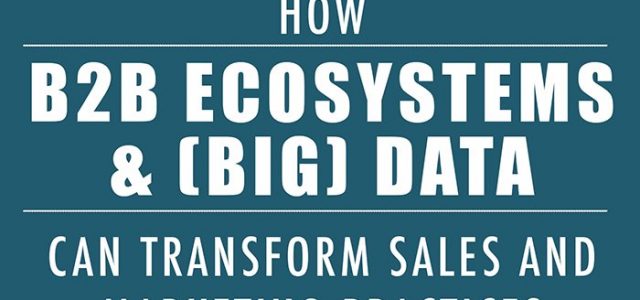Let’s start with the basics; Bitcoin is a form of digital currency that no one person controls often used in peer-to-peer payment systems. Blockchain is a tool that can help companies redesign business processes, share data securely, or prove the integrity of their data making it ideal to support Bitcoin transactions.
It’s important to understand that the Blockchain database is not stored in a single location, and is stored across a decentralised network, resulting in records being truly public and easily verifiable. With no centralised database or single version of the information, as the data is hosted by millions of computers simultaneously, the common security concerns associated with centralised databases are removed. This is achieved through the use of encryption technology in the form of so-called public and private ‘keys’. A ‘public key’ is a randomly generated string, whereas the ‘private key’ is like a password that gives the owner access to digital assets.
Bitcoin pioneered the open source technology, concepts and successful application of the Blockchain approach to securing and sharing data and money and has become synonymous with Blockchain. There is no doubt this is a contributing factor as to why the majority of the Blockchain use cases relate to the Financial Services (FS) sector;
- Reduction in Fraud
- Know Your Customer
- Trading Platforms
- Payments
So you’re an FS organisation and about to make a significant investment to secure financial transactions, should you consider Blockchain? Well, it depends, let’s say the transactions run on a database and it’s likely to require millions of investment to secure, then there is a chance Blockchains are the solution. However, if high performance, millisecond transactions are necessary, then a more traditional approach is recommended as Blockchains are slow, due to their decentralised nature.
Irrespective of industry, Blockchain can be used to store securely, and automate the integration of online transactions while taking into considerations factors such as transaction or payment history. This is beneficial as a means of making it easier to establish trust between all parties, stream operations and delivering a better customer service.
But if you are not an FS organisation what are the benefits, well simply put it a record keeping tool. Any process that requires a lot of record-keeping and security between parties could be suitable for Blockchain. If you think about Supply Chain, Blockchains could be used to orchestrate and share data between a network of customers, buyers, logistics companies, authorities or 3rd parties, each with their own requirements for some of the data. The ability to create a single secure Blockchain at the beginning of the process provides transparency through the entire process and can mitigate a number of the inherent security concerns across the supply chain.
A good example of this is the use of technologies to solve a common concern regarding product provenance. Why is this important? Well there have been many recent cases of contaminated food making it in to the food chain, as well as inferior medical products being used with devastating implications.
If you have seen the 2011 film Contagion, you will understand the need to understand better the origins of what we eat. In 2013, if you lived in the UK, you will recall the infamous horse meat scandal where supermarkets had to clear their shelves after the wrong meat was found in not only frozen ready-meals and meatballs but also fresh beef products. A reputational and financial catastrophe for all involved.
However, the problem extends far beyond food, in 2010 it emerged that French company Poly Implant Prothese (PIP) had made cosmetic implants with substandard, industrial-grade silicone affecting over 20,000 women worldwide. While Blockchain may never eradicate the scrupulous activities of criminal organisations, it might just restore consumer confidence and instil greater brand loyalty through greater security of the product data and provenance.
As we all know, the traditional approach to keeping your digital information secure is by building a ‘wall’, or ‘firewall,’ around your data. Inevitably, this means the data is vulnerable to people who can find ways to penetrate the walls you build.
In a recent Tripwire article entitled “A Hacker’s Perspective on Cyber Security” they highlighted the issue that just like cyber security professionals are constantly looking for ways to develop better and more secure software programs, hackers are always staying on top of the newest updates to overcome the latest defences.
Perhaps more alarming is how effective today’s hackers are at breaking your defences;
“A recent Nuix Black Report surveyed 70 of the world’s best professional hackers and found that 88 percent of hackers can break into their desired system and get through cyber security defenses in 12 hours or less. It only takes an additional 12 hours for 81 percent of hackers to find and take valuable data.”
So will Blockchain technology solve your supply chain security concerns?
Well, we know that Blockchain technology does not allow changes to data once it is written unless all or a majority of nodes in the network agree to the change. We also know cryptographic keys are combined with data held at each network node, and no single point on the network holds all of the data, making it a significant departure from the traditional ‘walled’ approach, and decreasing the possibility of backdoor transaction tampering to nearly zero. While securing a single data asset is important, we must also consider securing the ‘end to end’ transaction to mitigate supply chain fraud as well as helping meet regulatory requirements.
Given the interest and investment being made by Financial Services organisations, you would assume Blockchain technology is robust, proven and secure.
In 2016 Gartner published their “Hype Cycle for Emerging Technologies, 2016” which indicated Blockchain had just entered the ‘Peak of Inflated Expectation’ but more recently “Gartner’s Top 10 Strategic Technology Trends for 2017” indicated Blockchain as ‘Trend No.6’ and something to keep an eye on.
And here is the problem. It shouldn’t be forgotten that Blockchain is still very much an emerging technology with very limited market ready Blockchain solutions available. There will continue to be a lot of hype as with all emerging technologies, but there are limited examples where Blockchain solution have been deployed and even less that have reported tangible benefits. While Blockchain technologies offer a significant step forward in securing distributed ledger data I am sure there is a hacker out there waiting to exploit any potential vulnerabilities in a custom deployment.
At this point in the evolution of Blockchain technologies I would say that if you are risk-tolerant or traditionally an early adopter of emerging technologies, you should consider how Blockchain initiatives could help mitigate risk within your supply chain, as it may be the answer to your problem.
Looking at the wider application of Blockchain, there is a case for disrupting the disruptors. During the last ten years, the so-called ‘sharing economy’ has given rise to hugely successful companies such as Uber, Airbnb and Zipcar, based on the simple premise of brokering services between a supplier and consumer. For the convenience of providing an ‘app’, connecting the dots, and offering a cashless transaction they charge a fee.
But what if Blockchain allowed you ‘the consumer’ to connect directly with the supplier cutting out the middle man, what if you could have all the convenience without the additional cost, would you still use Uber, Airbnb or Zipcar? The use of Blockchain in the sharing economy would use self-executing smart contracts to perform the services currently fulfilled by the middlemen but at a lower cost.
Ten years ago you would not have thought you could be renting someone’s home or car for your annual vacation, but it has become today’s norm, largely due to the secure convenience factor.
The extent of Blockchain adoption in modern systems has not yet been fully realised. As we have seen with the more recent acceptance of Cloud technologies, it will take time for Blockchain to be fully understood and accepted as a means for managing and securing digital relationships as part of a system of record. Blockchain will, like Cloud, become increasingly part of a corporate strategy but when and how are still being explored.
Article by channel:
Everything you need to know about Digital Transformation
The best articles, news and events direct to your inbox
Read more articles tagged: Blockchain, Featured







